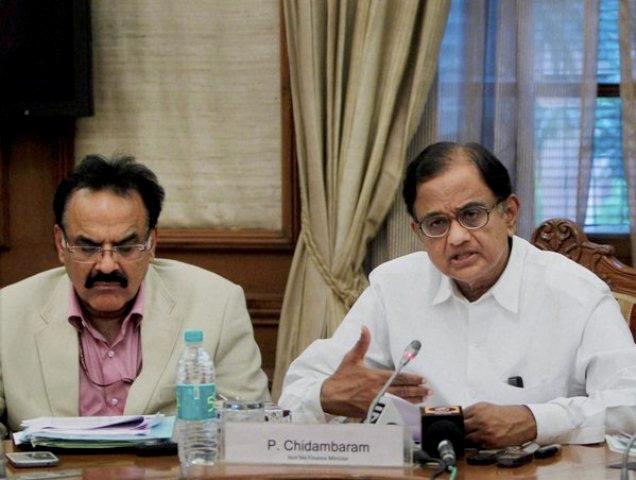 New Delhi, August 16;Seeking to calm rattled investors, the government and RBI on Friday said there was no reverting to capital control regime — the fear of which spooked stock market, sent rupee to its lowest level and pushed gold prices up by a record Rs. 1,300 per 10 gm.
New Delhi, August 16;Seeking to calm rattled investors, the government and RBI on Friday said there was no reverting to capital control regime — the fear of which spooked stock market, sent rupee to its lowest level and pushed gold prices up by a record Rs. 1,300 per 10 gm.
On a day when Sensex fell nearly 770 points or 4 per cent and rupee breached 62 to a dollar on concerns among large investor of capital curbs, the government and RBI went into fire-fighting mode assuring there was no move to check repatriation of funds by FIIs.
“They are saying that a capital control is coming in… There is no question of us putting any restriction on outflows which are commercial in nature, which means whether it is FII sell…,” Economic Affairs Secretary Arvind Mayaram told reporters in New Delhi.
He further said: “There is no control of outflows of dividends, profits, royalties, or on any kind of commercial outflows which happen in the normal course”.
Top sources in Reserve Bank blamed “unwarranted rumours” about controls on FII money to the nearly 770-point drop in the benchmark Sensex and rupee dipping to record low of 62.03 intra-day.
India, RBI sources said, had no record of keeping controls on FII money and the capital outflow measures announced on Wednesday were no way bringing back the control regime.
To restrict the outflow of foreign currency, the RBI had on August 14 announced stern measures, including curbs on Indian firms investing abroad and on outward remittances by resident Indians.
The central bank reduced the limit for overseas direct investment (ODI) by domestic companies, other than oil PSUs, under the automatic route from 400 per cent of net worth to 100 per cent. Higher levels of ODI would now need prior approval from RBI.
The measures taken by the RBI cannot be called capital control measures and they had more to do with reducing stress on the balance sheets of corporates, a finance ministry official said.
A Finance Ministry official said if the government is taking measures to increase capital inflows, it is part of the package to take measures to discourage outflows.
“With rising NPAs, corporates are getting more and more into difficulties… So looking into their balance sheet before they are allowed to invest abroad is all that has been proposed. Hence, it is not capital control,” he added.
Steps by RBI and government since July to tighten cash supply, restrict currency derivatives and curb gold imports have failed to arrest the rupee’s slump to record lows.
The situation has been compounded as the nation struggles to attract capital to fund a record high current account deficit.
The rupee has weakened 28 per cent in the past two years, the biggest tumble since the government pledged gold reserves in exchange for loans from the International Monetary Fund in 1991.
Mr. Mayaram said the stock markets in India seem to be operating on sentiments and government is fully cognizant of the situation. “Whenever required, policy initiatives will be taken with a view only to create stable environment for rupee. We will see when it is required, we will take appropriate measures.”
He said: “We will take all measures to create stable environment for the rupee. We will try and prevent volatility in the rupee. It does not mean we have any intention of defending the rupee at any particular point,” he said.
Sources said throughout the history of Indian reforms, not once was it contemplated to control or restrict FIIs taking out their principal or dividend. Under FEMA Act, it will be illegal to stop any such repatriation, they said.
